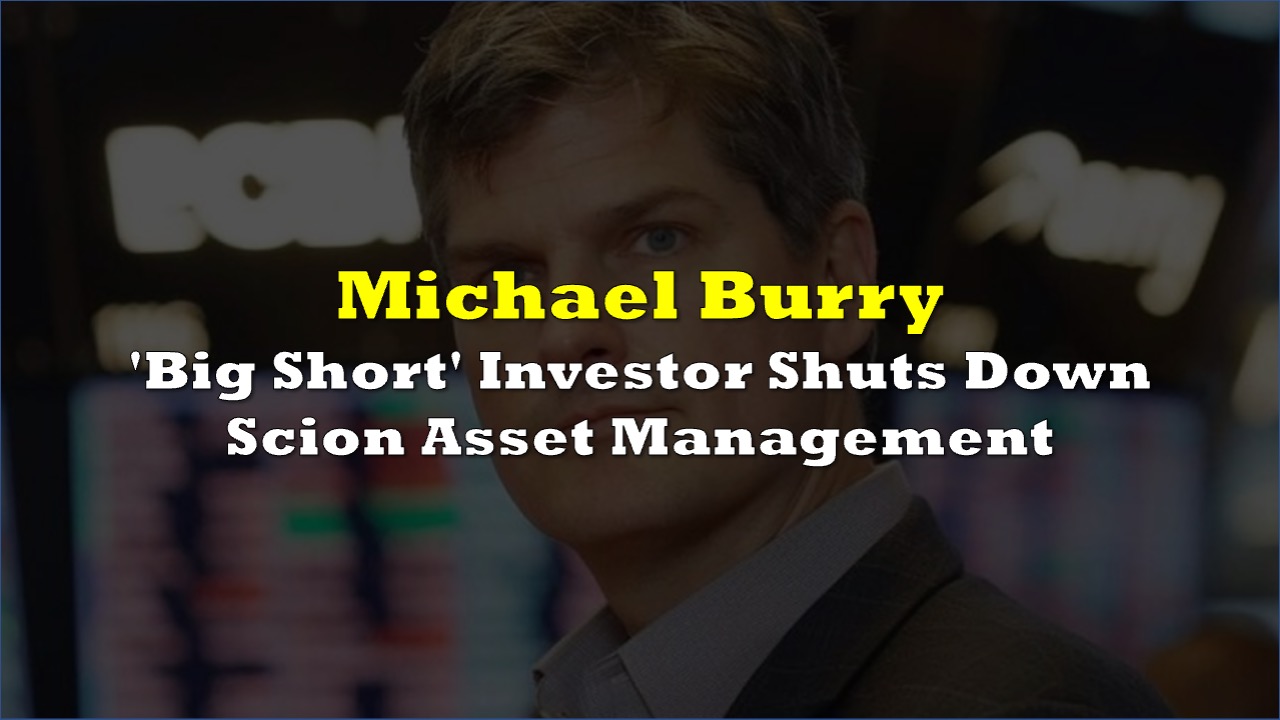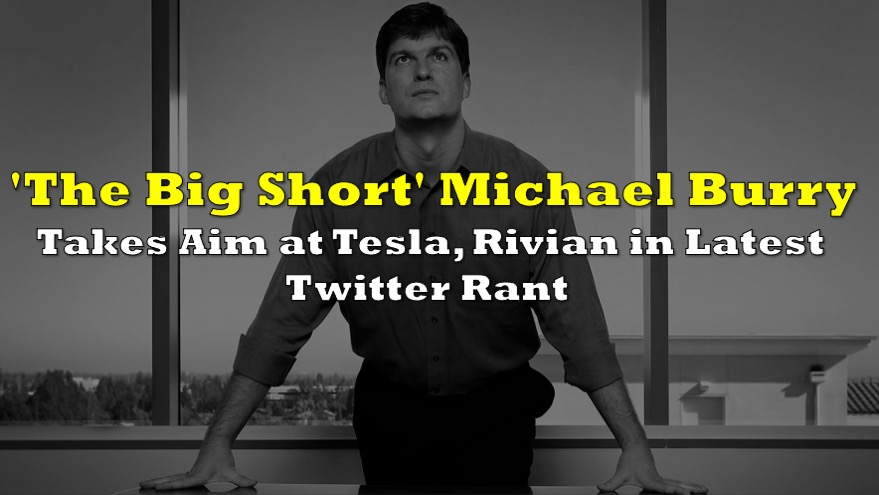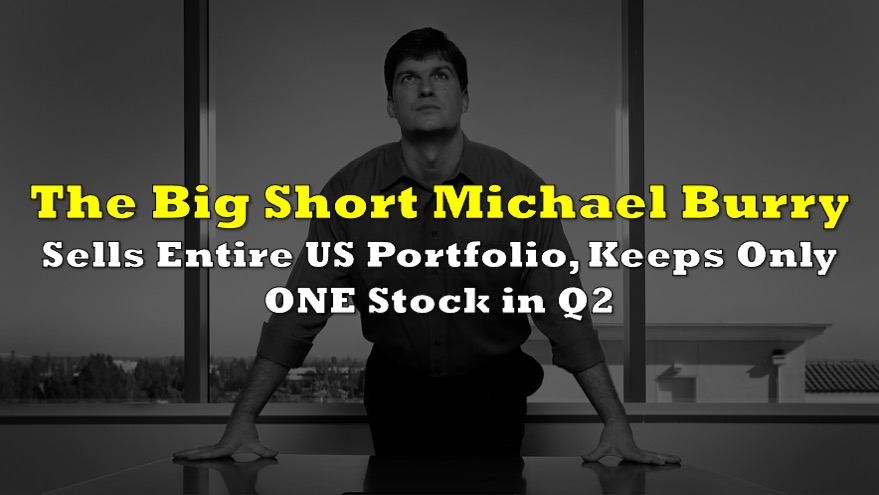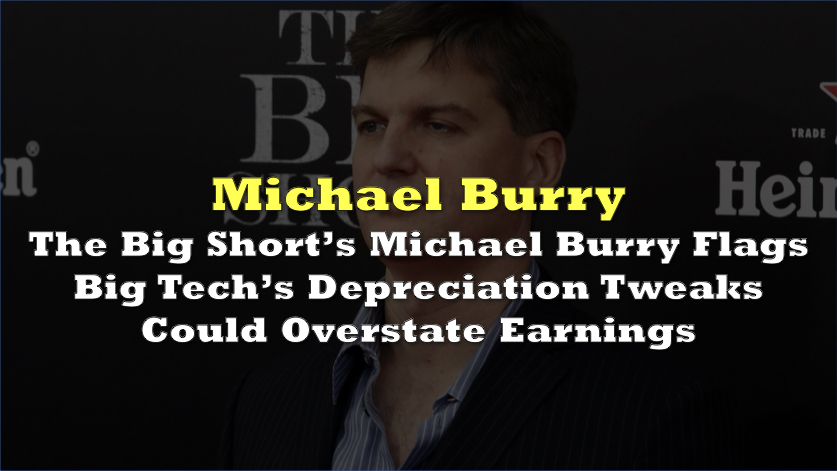Michael Burry, the investor who famously predicted the 2008 housing market collapse, has deregistered his hedge fund Scion Asset Management with federal regulators, sparking speculation about his next move and the state of financial markets.
The Securities and Exchange Commission’s database shows Scion Asset Management’s registration status changed to “terminated” effective November 10. The firm had been managing approximately $155 million in assets as of March 2025.
A letter purportedly from Burry to investors, dated October 27 and circulating on social media, states he will “liquidate the funds and return capital” by year’s end. In the unverified letter, Burry wrote that his “estimation of value in securities is not now, and has not been for some time, in sync with the markets.”
Michael Burry appears to be shutting down Scion Asset Management. https://t.co/4v7kAfUbkV pic.twitter.com/J3DBQHrATD
— saila (@sailaunderscore) November 13, 2025
Burry gained widespread recognition for betting against the U.S. housing market before the 2008 financial crisis, a move that earned him and his investors hundreds of millions of dollars. His story was featured in Michael Lewis’s book “The Big Short” and the subsequent Oscar-winning film, where Christian Bale portrayed him.
The 54-year-old investor originally founded Scion Capital in 2000, shut it down in 2008 following the financial crisis, then relaunched it as Scion Asset Management in 2013.
When an investment adviser deregisters with the SEC, it stops filing public documents that detail how the fund operates, what it charges, and potential conflicts of interest. Investment advisers managing more than $100 million typically must maintain SEC registration.
The move has fueled speculation that Burry is converting Scion into a family office, which manages wealth for a single family and faces fewer disclosure requirements. However, if Burry continues managing more than $100 million in certain securities, he would still need to file quarterly reports disclosing holdings.
Just days before the deregistration, Scion filed its quarterly report showing large bearish positions against artificial intelligence companies. The filing showed put options — bets that stock prices will fall — tied to Palantir Technologies and Nvidia.
Media outlets initially reported the positions as worth $912 million for Palantir and $187 million for Nvidia. Burry later clarified that these figures represented notional values, not actual money spent. He said he spent $9.2 million on the Palantir options.
So, I bought 50,000 of these things for $1.84.
— Cassandra Unchained (@michaeljburry) November 13, 2025
Each of those things is 100 doodads.
So I spent $9,200,000,
Not $912,000,000. @CNBC @WSJ @FT
Each of those doodads let me sell $PLTR at $50 in 2027.
That was done last month.
On to much better things Nov 25th. pic.twitter.com/9Voy3nwiTD
Burry has recently criticized major technology companies on social media, questioning the AI boom and accusing cloud infrastructure providers of using aggressive accounting to inflate profits.
Burry said on X Wednesday that he would be “on to much better things Nov 25th,” though he did not elaborate. This pattern of shutting down and restarting his fund mirrors his 2008 decision to close Scion Capital after his housing market bet, only to return five years later.
Incidentally, several prominent short sellers — investors who bet against overvalued stocks — have faced challenges. Hindenburg Research shut down earlier this year, and veteran short seller Jim Chanos shut down his hedge funds in 2023, reflecting what some see as a difficult environment for bearish investors amid strong market performance.
Information for this story was found via the sources and companies mentioned. The author has no securities or affiliations related to the organizations discussed. Not a recommendation to buy or sell. Always do additional research and consult a professional before purchasing a security. The author holds no licenses.









